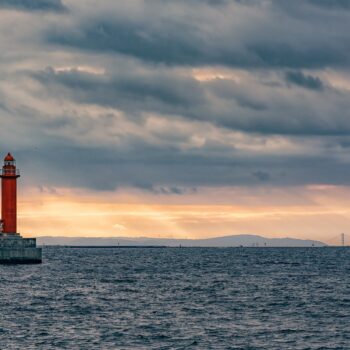
THE LIABILITY OF THE CLASSIFICATION SOCIETIES
The sinking of the Al-Salam Boccaccio ‘98: a pivotal ruling of the European Court of Justice followed by the Italian Supreme Court denying state immunity to the classification societies.
Factual Background
The Al-Salam Boccaccio ‘98, a Panama flagged Ro-Ro passenger ferry en route from Saudi Arabia to Egypt sunk in the Red Sea on the night of 2nd February 2006 as a result of a blast occurred on board.
More than 1.000 passengers lost their lives in the event and the survivors as well as the relatives of the deceased brought an action before the Court of Genoa against Rina – which acted as classification and certification society and which seat is in Genova. The claimants requested compensation for the pecuniary and non-pecuniary damages arising from the Rina’s civil liability. In their view, the sinking was caused by the classification and certification operations carried out by the Rina when acting on behalf of the Republic of Panama for the purpose of obtaining the State’s flag for the vessel.
Rina contended the lack of jurisdiction of the Court of Genoa in so far as such operations were carried upon delegation from the Republic of Panama thus representing a manifestation of the sovereign powers of the delegation state. According to the well-established international law principle of sovereign immunity, a state cannot be sued before the courts of another state without its approval.
On the other side of the spectrum, claimants insisted that the dispute had to be heard before the court where Rina has its seat, namely Genoa. Being the dispute at stake civil and commercial in nature, they referred to art. 2 (1) of the Council Regulation (EC) No 44/2001 on jurisdiction and the recognition and enforcement of judgments in civil and commercial matters according to which “persons domiciled in a Member State shall, whatever their nationality, be sued in the courts of that Member State”. Furthermore, the claimants argued that immunity principle cannot be invoked in this proceeding in so far as immunity does not cover operations governed by non-discretional technical rules which are unrelated to political decision and prerogatives of a state.
The Court of Genoa first and the Court of Appeal later upheld their lack of jurisdiction on the ground that the matter could not be litigated before an Italian court in so far as Rina, acting upon delegation of the State of Panama, would have benefited from the sovereign immunity. The claimants appealed the decision before the Italian Supreme Court. The Supreme Court stayed the proceeding as the matter was already referred for a preliminary ruling to the European Court of Justice – on the initiative of other claimants in a separate proceeding regarding the very same fact.
The European Court of Justice’s ruling
In the very essence, the matter the ECJ was referred to is whether an action brought against a private entity performing statutory work as representative and upon delegation of a flag State is to be intended as “civil and commercial matter” within the scope of Art. 1 (1) of EU Regulation No 44/2001 and, therefore, whether such entities enjoy jurisdictional immunity whilst carrying out those classification and certification operations on behalf of a state.
The ECJ reasoning stems out from the meaning of acta iuri impeeri generally referred to as the actions performed by a state or a public authority in the exercise of its public powers, as opposed to acta iuri privatorum, that is to say private and commercial acts carried by a state or a public authority, the first acts only benefitting from the sovereign immunity.
The ECJ stated that “the fact that certain activities have a public purpose does not, in itself, constitute sufficient evidence to classify them as being carried out iure impeeri, in so far as they do not entail the exercise of any powers falling outside the scope of the ordinary legal rules applicable to relationships between private individuals”. In other words, the fact that classification societies activities, among other things, are deemed to guarantee the passengers’ safety, it does not imply that such activities are manifestation of public powers.
The court argued that when a classification society carries statutory work upon delegation of the state’s flag does not enjoy any decisional power. It is for the state only to set out the technical requirements that the ship is to meet to obtain the certificate and then to fly the flag of that state. The role of the classification societies – such as Rina – “merely” consists to check whether the ship meet the requirements imposed by law of the flag’s state. It results that Rina does not have decision-making power but operate within a specific a regulatory framework instead.
The court also pointed out that it appeared that the statutory work was carried under a commercial contract governed by private law that Rina directly had entered into with the shipowners of Al Salam Boccaccio ‘98.
The ECJ also expressed an obitur dictum on Recital 16 of EU Directive 2009/15/EC on common rules and standards for ship inspection and survey organisations and for the relevant activities of maritime administrations, which provides that “When a recognised organisation, its inspectors, or its technical staff issue the relevant certificates on behalf of the administration, Member States should consider enabling them, as regards these delegated activities, to be subject to proportionate legal safeguards and judicial protection, including the exercise of appropriate rights of defence, apart from immunity, which is a prerogative that can only be invoked by Member States as an inseparable right of sovereignty and therefore that cannot be delegated.” Indeed, the court recognized that this directive does not apply to the present case since it concerns disputes between Member States only. However, this recital must be taken into account to grasp the spirit of European law-makers with regard to the application and interpretation of the sovereign immunity principle.
As a result of the foregoing, the ECJ ruled that an action for damages against a private entity engaged in carrying out operations on behalf of a flag’s state, falls under “civil and commercial matters” within the meaning of art. 1 (1) of the EU Regulation 44/2001, and that, more broadly, classifications society’s statutory work is not considered as expression of public powers.
Conclusion
After the ECJ ruling, the Italian Supreme Court issued its decision overruling the Genoa Court of Appeal’s decision, rejecting Rina’s defence based on the state immunity and confirming the dispute to be heard in Genoa (where Rina has its seat) in accordance with art. 2 (1) of the EU Regulation 44/2001. The Italian Supreme Court reasoning purely mirrored the ECJ’s one.
It also worth pointing out that an opposite view was given on the issue of the immunity in 2010 by the French Court of Appeal in the legal proceeding arose out of the sinking of the Erika. The Erika, a tanker vessel sailing under Maltese flag carrying heavy fuel oil, broke up and sank in the Bay of Biscay in 1999 causing large oil pollution on the French coastline. The Court of Appeal ruled that Rina – the classification society which performed statutory work – was partly responsible for the causality. According to the Court, a classification society which perform statutory work do exercise a public function and it is therefore immune from liability. However, under the circumstances of this specific case, Rina was held liable on the ground that it had waived such immunity right.
It can be grasped the utmost importance of the rulings of the European Court of Justice and the Italian Supreme Court which – albeit do not constitute binding precedents under Italian and European law – will establish a solid legal framework on the topic of the classification societies’ immunity that further courts would be indeed called to consider.
The outcome of the Al Salam ‘98 proceedings is far to be decided. The relatives of the victims and the survivors will be awarded with compensation on pecuniary and non-pecuniary damages depending on whether the Italian court will establish Rina’s liability on the merit of the case.
Avv. Lorenzo Macchi

- Posted by Lorenzo Macchi
- On 12 March 2021


